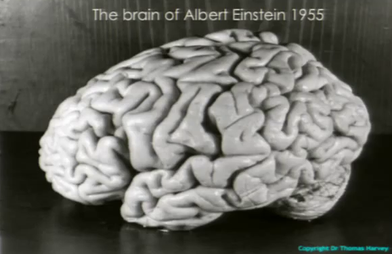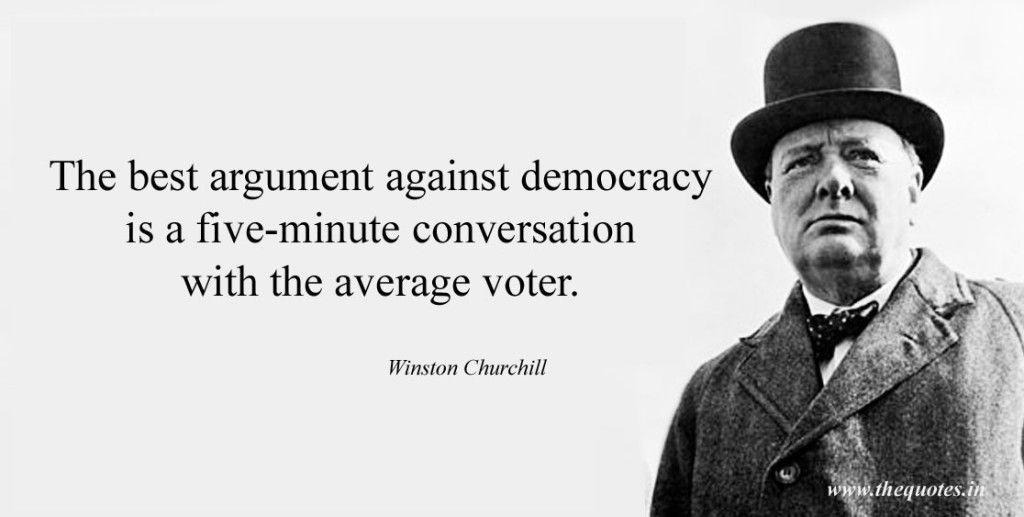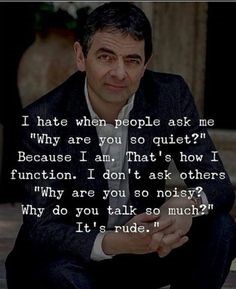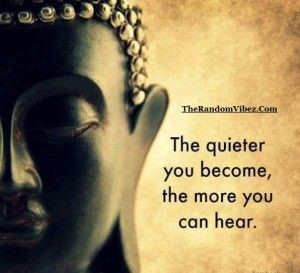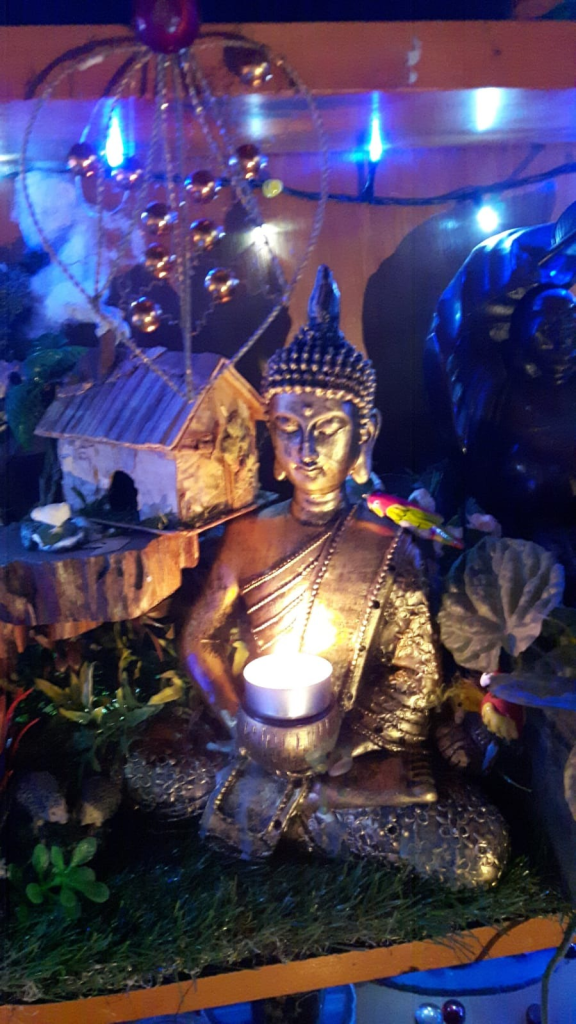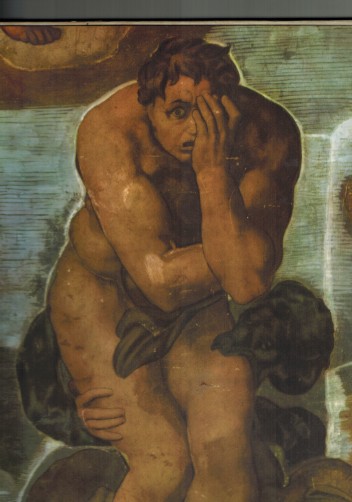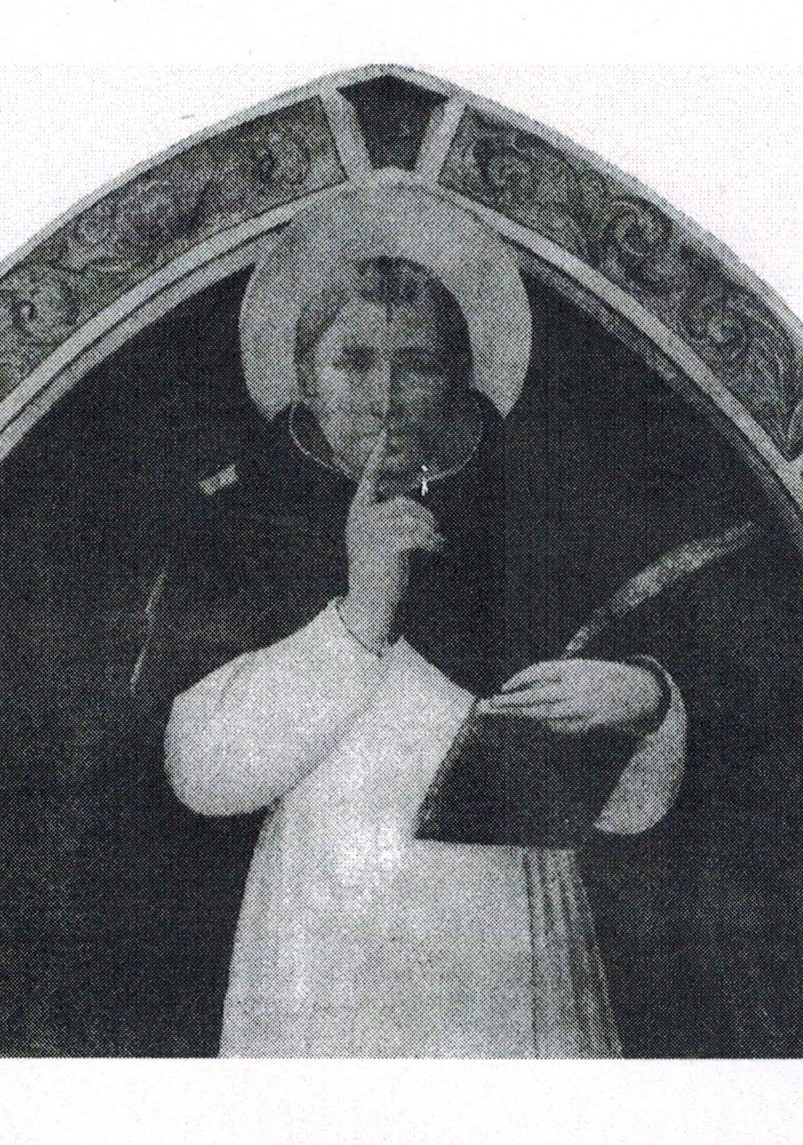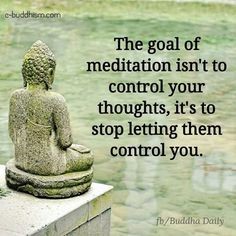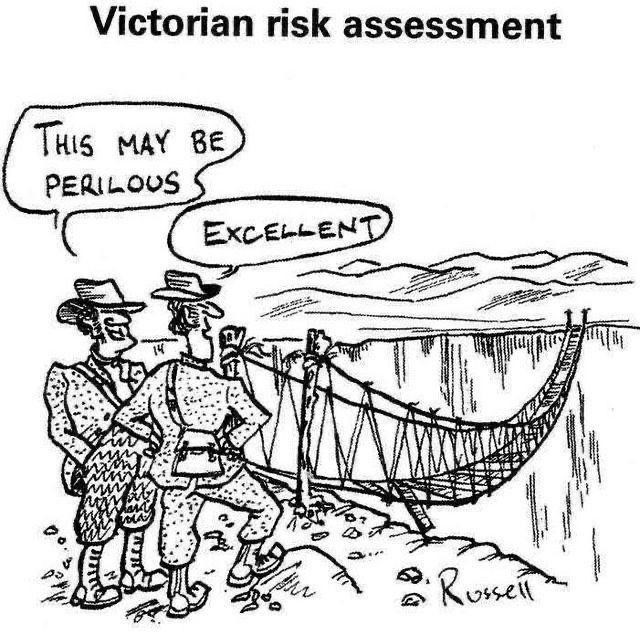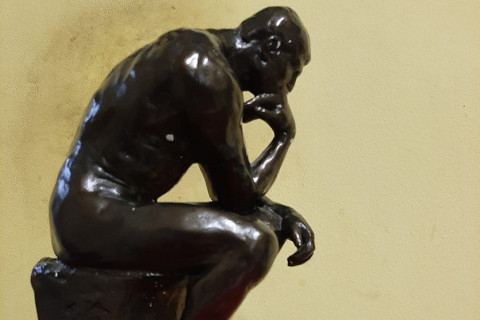FAITHS and RELIGIONS
The centrality of belief-systems and value-systems in our way of thinking prompts discussion about Faiths and Religions in almost any treatise on Reflection.
Cautionary notes: All adherents of Religions, Faiths, and Cults, be they spiritual or temporal, are hereby assured that the purpose hereunder is far from an intention to attack anyone’s faith.
People are cordially begged to take up the metaphoric telescope bequeathed by Galileo and look through it at the prevailing wisdom of the day and to see for themselves.
***
History began when men invented gods and will end when men become gods
‘What is faith?’ ‘It is to believe firmly in what one does not understand.’
Madame du Deffand
***
The Yaohnanen tribe of Vanuatu believes that Prince Philip, pictured holding a traditional pig-killing club, to be the son of an ancient mountain spirit.
An atheist debunking the possibilities of Life after Death was asked:
‘A deer, a horse and a cow and all eat the same stuff: grass so why do they respectively excrete pellets, clumps and flat pattys?’
On the surprised atheist saying that he’d no idea, he was met by the poser:
‘Do you feel qualified to discuss Heaven and Hell when you don’t know shit!’
***
Introduction
To give the devil his due, he doesn’t have just the best tunes, he can probably afford the best lawyers. Religions may be an excellent thing, and probably are, and for many, many reasons, and it is not in these pages that issue is taken with immemorial truths of Mankind.
The uplifting homily in the illustration above an in-built problem. So too with religion. It is this: are they true or not? Your can rest more confidence in your conclusions if the depths of a question have been fathomed to the best of your ability.
What do we really know?
- Most religions arose thousands of years too soon! Leastways their verification seems problematic to sceptics. Many presuppositions of the founders of religions are out of kilter with the needs of today. As a rallying cry ‘Render unto President Biden his due and to God, His’ may seem less than inspirational?
- Religions are for everyone but you and I might prefer a creed that is tailor-made for us personally? Some of us know that we are exceptional cases, don’t we? A ‘one size fits all’ system surely can let down the odd needy individual. Imperfection is a part of reality. It is hardly done to cherry-pick at just the parts that we like.
- Geography gets in the way of belief in religions. The Eskimo in his igloo has his work cut out to visualise revelations revealed under the shade of a Bo Tree in Sri Lanka – that is, assuming he ever heard about them.
- Time also gets in the way – you might have died hundreds of years before the Word of Enlightenment spread to your neck of the woods.
- History is a problem. There is for the most part no clear demarcation zone in religious teaching between history and Message. History invites scepticism. Did the Red Sea part for the Israelites by divine dispensation or is there a seasonal receding of those waters? Was Moses given the Tablets of Stone on the top of Mount Sanai or in kilns recently discovered at its foot?
- Why should a gentile unknowingly acting according to Christian tenets be less worthy of salvation than its true believer who has the added and perhaps unfair advantage of scriptural instruction? ‘Going to a church doesn’t make you a Christian any more than standing in a garage makes you a car’?
Men are thought to be fallible yet men, not even women usually, are the authors of the major religious teachings: every prayer and interpretation of scripture is filtered through the medium of men – with apologies to those with faith in the extra-terrestrial origin of crop circles and similar phenomena. There are so many easy targets for the sceptics but the sacerdotal garb in which they are clothed disinclines people to take pot shots at them….
Mohamed could not write. The Disciples were fishers of fish who surely roped in literary co-editors. Their account was reinterpreted in 325AD in Nicaea by a council whose knowledge of the Gospels, notably of Judas, was coloured by prejudices. Again, neither in their native Vanuatu nor in Buckingham Palace does record attest to Yaohnanen tribesmen making a serious attempt to tackle Princess Alice about whether, by giving birth to Prince Philip – whose claims on deification such as the dedication to the Good of the Realm surely are not to sneezed at – she had mated with the ancient mountain spirit of legends.
Once outside the religious tent wherein such notions are sacred, the fact of the matter is that no Mountain with its spirit came to this Mahomet, squeezing into her bed. We my sign with relief that her reputation as a woman if not a goddess-mother is relieved of all imputation that she was two-timing Prince Andrew of Greece and Denmark. Buddha made no bones about being a mortal man but he did make all sorts of other bones as his followers seem determined to prove. Each stupa is said to contain bones of Buddha and thousands of stupas exist.
A quizzical eyebrow can be raised that so much special pleading of such convenience to men in these tales seems to be so prominent.
- Them there are the claims of religion as the sole revealed truth? Jesus was not the brother of Buddha nor was the Prophet was consanguineous with Shiva. There is no shilly-shallying. Compromise is barred. Are we to say ‘My religion Right or Wrong’? We do not say it any longer of our countries.
- Why gloss over the fact of religious men hand mankind this recipe for one big, unhappy human family. In any case, science these days is familiarising us with the concept that a thing can itself and the opposite of itself at the same time.
- Religions cater to man’s inmost drives. (See section in Appendix on ‘the Petril Dish’). Do those promptings guarantee the accuracy of what is concluded as a result? This is to argue backwards from desired outcomes to causes. Man needs stories and moral pointers. Pleasure and ecstasy are incentives to humankind ergo Paradise is a land flowing with milk and honey or it is one of virgins awaiting trysts with martyrs.
- Some teachings constitute an ethical problem; indeed the Old Testament is hardly the last word on good behaviour.
Is there a hint of men arrogating to themselves a fiat to cast thunderbolts from on high, even if the height is only that of a pulpit?
If the Afterlife is composed of an undifferentiated Universal Soul which we re-join after life on earth, who can blame prudish types evincing a distaste at being subsumed into an Entity that contains a soul of Adolf Hitler? The myths or tales of religion may be wonderful but how, for instance, do we know that light is superior to dark? Our beginnings are in a dark womb; the Dark Ages was a fertile mulch for ideas that went on to actuate our lives. Why is Heaven ‘up’ – some ancient religions saw it as ‘down’. A Hindu can boast of a sacred animal, to whit a cow. A cat, Mafdet, symbolised justice to ancient Egyptians. Did a deity appreciate the sacrifice on alters of his creatures? Old Testament believers demonise the snake in Eden but Eve isn’t exactly let off the hook either.
- Why shouldn’t a deity be female? In Fiji, a religion’s founding father is said to be reincarnated as a turtle which returns to the tribe at times of peril. Peril is probably inevitable as his wife is to be reincarnated as a great white Shark. The tale is not intended as a commentary on the institution of marriage.
- Religion buttresses morality. This argues from desired outcome to an initial premiss. Furthrmore there is an additional problem. What happens if the culture of one country differs from another? Is there an objective standard? Take the idea of revenge: Christianity advocates ‘turning the other cheek’ whereas Hinduism in the person of Arjuna enjoins on the faithful fighting the good fight against forces of evil lest they proliferate. There are life-affirming cults and faiths and texts for how to live a good life without recourse to scriptural authority and no end of attempts to date at underpinning morality other than by religion prove that it cannot be done.
And yet, and yet …
WHAT CAN WE HOPE FOR IN A MODERN RELIGION?
If you want to find the secrets of the universe, think in term of energy, frequency and vibration
There are more things in heaven and Earth, Horatio, / Than are dreamt of in your philosophy!’
- William Shakespeare (in Hamlet)
The truth is more important than the facts
***
The need for religions was and is there. They have arisen if with different story-lines all over the world with fundamental truths in common. What surely counts is the essential message? What survives the legitimate questions? What of value can we believe? The answer may be ‘Everything that is of value.’ Perhaps all our religions are true, and our justifications in cleaving to them are that we cannot pierce through to a pure truth but they represent the closest to it that our physical bodies can comprehend at present.
The more historical baggage there is, the more at which there is for doubters to take pot shots. Why invite counter-productive controversy?
We can believe in our allegories and a communal or race history that binds us together and so forth but is it not better to aim at factual and intuitive realism in faith rather than in dubious man-made accounts of what may have happened. There is many a truer word spoken in novels that depict the wide canvas of life than in the best researched of history books. Does it matter if the stories in scripture are historically true if the Divine Inspiration behind them is true?
If the categorisation of a ‘Religion’ is changed to ‘Religious history’ and treated as though a hypothesis as opposed to holy writ it could help clear away much linguistic confusion.
Maybe it is idees fixe about religion that are at fault? Life in general offers probabilities rather certainties and this applies to religious dogmas as to everything else. If people cannot fully comprehend what a Deity is, why does it matter what labels they give to it?
Whatever evil done has been done in the name of religion no-one can say with certainty that the course of history would have been better with an absence of religion. No one knows the alternative future that did not happen. No one can compute how far religion has been used merely as a pretext to further evil or deluded ends of men. Why tie spiritual life to the record of historical figures? Religion’s ‘ambassadors’ may be crusaders, terrorists, misguided if well-intentioned meddlers, perverts or simply people perceived as obnoxious. They tar a religion by association on the principle that you can tell a man by the company he keeps. Conversely, and for all we know, it may be that the founders of religions and their disciples and those who compose prayers and commentaries are impregnated by a Holy Spirit. It may have been a gigantic ruse on the part of an unimaginable deity using necessarily human instruments to accomplish its design?
There surely is something amiss with religion’s conceptions of gods. Why should they be He She or It? We do not feel comfortable with considering a prospect like androgyny being a likely attribute of a god. It may be how we like to think in general. Any physical familiarity that we commonly attribute to a god-like figure surely is an irrelevant, superficial point.
What could a religion for today look like if it was flexible enough to take account of the experience and evidence of the last hundreds of years? ‘What came first’ can be different from ‘What came first is right’? Philosophers and moralists have yet to get their teeth into some of the findings of scientists. Why should there not be an all-seeing and all-powerful God in way that we do not understand? It is not so difficult to envisage since the advent of the navigational GPS! In the GPS for cars, there is a practical illustration of how a myriad of questions may be answered about different journeys from different drivers, at the same time. If a simple enough mechanical contrivance can accomplish all this, a Deity no doubt could do much the same.
We may see the Hand of Providence in our destinies, the part played by fortune. If we can never be certain about anything, this seems as good a hypothesis as any.
Maybe the world in front of our eyes, and through our telescopes, is so utterly amazing that we just do not credit fully what we are seeing and as usual take for granted that which is the ‘given’. Familiarity even with miracles stales them. We are shown the incredible world and cosmos and simply do not deify them because we know of them.
It is now accepted that ‘primitive’ peoples deeply know much that more advanced societies have forgotten – though it does not stop us debunking their theories as if it is the theory not the deeper truth that matters. Some people see what matters: David Attenborough says of aboriginal culture ‘Although the Dreamtime was in the past, it is also coexistent with the present, and a man…can become one with his ‘dreaming’ and experience eternity.’
Are we to say for sure that reports of truth-inducing jungle plants which give ideas of astral travel to those under its spell or the many reports for instance of phenomena like levitation, or recall of previous lives – accounts of which seem to crop up anew in each succeeding generation – must be just so much hooey because, true, we can isolate instances of ‘fake news’ about them?
Do animals have purer emotions than those of mankind because not filtered through a process of ratiocination and so can light us the way to seeing our essences?
Proof of divine revelation may yet be coming. What scientist may arise armed to the teeth with Facts to set us straight?
The fact is that in spiritual terms we do not know where we come from. That is not the case as regards our origin physically in the stars.
We wish to reach for the stars, and this could be a form of ‘like gravitating to like’?
The random nature of the movement of matter in physics may be of relevance to the laws governing our innate natures and our purposes as much as to what lies behind the universe. Sub-particle physics goes far towards explaining physical occurrences. They are more random than formerly supposed. Building blocks are often not where one supposes them to be. Physical laws like gravity once taken as a gospel seem to have less relevance beyond our planet.
It may be that our spirit life is a component of ourselves continuing on after life. It may have an existence that is not physically based.
There is a belief nowadays that there is something Up There or ‘surrounding’ us. It can be in the form, it is increasingly said, of Mother Nature or related to the circularity of time or a space/time syndrome or identification with the cosmos in some form. The composition of metabolism may well be more susceptible than hitherto commonly believed to the power of thought. Spirituality may be a matter of the frequency and form of vibration. There is much talk of the Energy that informs our world, the Unseen World being the actuating groundwork of our lives. Vibrations arguably are the truth behind the world, or wave forms, with time and space being the true illusions.
What of the circularity of time that is increasingly respectable as a theory in physics? We can see what this may mean in personal terms even if it is not our familiar way of thinking about the world. It can seem as if, no sooner than something is thought of, it happens. We plan events and our consciousness or mental world – a leitmotif through our life – stays much the same. The planned event takes place and then it appears to happen at almost the same moment in time. It is as if time collapses in on itself. In a biblical turn of phrase, In the end is the beginning. There are different continuums apart from the purely chronological. The thinking of a young boy on a given subject may be forgotten till, at some time later, the same subject crops up – and then the young boy and the middle-aged man are, so to speak, in the same time-frame. A mood, dimly-remembered, surfaces in the mind and connects the self with the same or similar past feelings. It is not the end or the beginning as in a story-book narrative. What counts is an ongoing tale. It is perhaps circular, with time coming round again – the story as a whole entity in itself.
We have an idea; it seems to strike one at a given moment that is identifiable. That idea did not pop up in a vacuum. It was linked with and based on another idea or set of ideas that occurred in the past. There are whole sets of ideas where past and present ideas came together in one instant in time. Each memory may have a grounding or tracery in a physical nano-cell. It seems odd if clearly demarcated ideas emerge from an undifferentiated ‘cloud’; it seems more likely that a mental event kick-started the correlating physical event. Ideas surely are specified somewhere even if there is the coming together of different overlays over a period of time.
So much of what we hope for in a religion may be allowed into our belief-systems if the vernacular of our beliefs is revisited. For instance, it may be thought that, when we die, we will see our loved ones again, perhaps in a purer form and shorn of some of the myopic baggage picked up in their journeyings on earth. The implications of the circularity of time, a respectable scientific theory, allow in as a possibility that which many psychics testify as examples of prevision or seeing into the future. An Afterlife and also Pre-life becomes more possible
If Man or Woman is in the pattern of a Deity, why not the planets, stars, or the ‘lower’ animals of which we may be part? It is said that man is in the image of God and if true it also may be vice versa? If there is a Being like us in ways that we do not understand – a man-like being that is the deity – we do not anyway understand the essence of man.
Why assume that emotions are unique to our consciousness? Why assume that our consciousness is a thing unique because we cannot or do not yet understand enough of what actuates the rest of the Universe? Emotions like anger may be perceived by our conscious minds as unique but this may be only a medium – the filter that we see – rather than a true message. A human may in some ways be akin to a planet with a volcanic gaseous core moving through space in different dimensions. Anger, say, may not just be a trait of the animal kingdom in which we are included. A volcano may be said in a sense to be angry though we doubt – without knowing – that it can be conscious of itself as we have self-consciousness. It was scientifically established by Masaru Emoto that water reacts adversely to angry words. There is no suggestion that water is a sentient being.
We each play host to billions of inter-connected cells and each of these cells has its own existence, a life-form looking out on the world from inside ourselves. Apart from the New Age idea of treating our body as ‘a temple’, deliberately ingesting nutrients and so forth, we pay those lifeforms in us scant heed. They go their own sweet way inside us and are taken for granted. We think little of these dependents of ours. They played their part in setting us up and making our bodies what they are but we feel no call for gratitude for their assistance. Under immense magnification the nano building blocks inside our bodies do not look in any way human; they seem more like serried ranks of waving coral. Their being our springboard from which we take action plays no part in our decision-making. If we take risks with our lives we do not remotely worry that we may jeopardise the existence of all these myriads of our dependents.
If a microscope comes before a telescope and if there is a way to understanding the cosmos that includes an understanding of microcosms, we are entitled to look at the internal basis in a human being in terms of his smallest components. Telescopes and microscopes are so powerful these days with some able to detect the light and heat of a candle twelve miles distant. Instruments probe untold light years into the what we can detect of the universe – it is estimated by some as but 4% of the total, assuming indeed there is a ‘total’. Instruments trained into the deepest sub-strata of our bodies reveal nano-matter of which we are composed. Under this mega-magnification serried ranks of gently waving, coral-like ‘building blocks’ greet our eyes. There are billions of them apparently outnumbering the stars in the universe. To see them, they do not in the remotest degree seem ‘human’ and yet, there they are, inside of us making us tick. A fantastic story! It is a small leap to go from there to describing it as a miraculous one.
There may genuinely be more than one way of looking at ideas, and both be correct.
A sense of how little we truly know should be at the core of our beliefs. How does Man know if an apparently inanimate planet may not have a life of its own that is veiled from our understanding? There may be more in common in a planetary life form with emotions of a man or animal in the cosmos or several cosmos-es than we care to think. All matter of which we are composed derives from Outer Space. We hail from the stars and the matter in us is from outer space. You and I did not exist a few decades ago. To say the obvious – which is often overlooked – generations happened from the womb onwards. Where au fond did any of this come from?
If we are to pick and choose the laws of nature for where they apply to religion, perhaps we could make a different selection. Neptune, Jove and the host of deities to who we have genuflected may for instance be too large-scale for the pattern we could be seeking? Is there a mirror in Nature to the myths and Legends which form and explain our collective consciousness? The Pitcher Plant might be likened to the Beautiful Sirens who would lure sailors to their Doom…the plant lays a beautiful trail for insects to follow tight up into the delicious pool into which the insect topples and are drowned and are then in-gorged, etc.
We do not know where our own ideas come from, let alone the cosmos. An unlocking of secrets of the universe may come from looking within ourselves?
Ask poets wherein lies the explanation for their inspiration? Often as not, they will say it is inspiration or divine inspiration and they do not understand from where comes the prompting that they then chisel into shape with their partly conscious minds. What is behind our every thought? We do not know even what is going on at the centre of each and every one of us! If it is so within us, mankind, why may it not be the same thing throughout the Cosmos?
Compare hypothetically the Essence of Man with the Almighty Cosmos. Why should there not be the gravitation of ‘like’ being attracted to ‘like’, the small to the great, the infinitely small to the infinitely great? Perhaps we can be conceived as a piece of the Almighty Hologram. Men and women, individually, may have their assigned place as infinitely tiny cogs in the wheel. There are infinitesimally small cogs of nano-matter in each of us, a similarity with the cosmos that comes down to a central feature of man that is shared with the cosmos. ‘Deep can call unto Deep’ and we accept that this is a case of ‘chemistry’, of intangible understandings. This may link in with the question of origins. Perhaps the Deity ruling our lives, our worlds, is a mega-gigantic version of ourselves. It happens in holograms as much in Brighton Rock. Any part of fragment is a mirror image of the whole. Maybe the entire cosmos is one tiny cell in a mega-‘Man’ (presumably not an exact replica writ large) walking around asking these very questions in some comparable form?
There may well be a level behind all this speculation that is not given us to know and which we may not be supposed to know at the present levels of our understanding. It can be compared with an Afterlife which, if it exists, cannot be explained to us in factual terms that we are geared to understand; for one thing, the moment we know for sure, absolutely one hundred per cent certainty and no room at all of any doubt whatsoever, that any one of the gamut of explanations about the Afterlife are true, then all of human society is altered. We would know only too well what ultimate fate would befall us on our putting a foot out of place.
This may all be conjecture but nonetheless it opens up a window into what might be a Divine Nature of a sort that was not conceived in biblical times. If the truth were ‘out there’ how else could we revist our pasts than as in the form of a spirt or ghost, unable to tamper with what was already to happen. The truth must be out there. It may be much as we may conceive it but in a form that we are unable to reduce to our form of communication, language.
What to do?
What in practical terms might be the direction in which to go as regards a freshening up of the way we look at religion?
The idea that the Abrahamic Faiths should co-exist peacefully as do the Hindu and Buddhist faiths where the respective temples can be placed side by side has recently received a fillip from the plans for an Abrahamic Family House, a centre comprising a synagogue, a church and a mosque, that are being unveiled in New York, and being discussed in Abu Dhabi.[1]
There is a new religion today that seems to take more account of most of the above issues than most others, and it is the Baha’I faith.
If we are to have a religion, why not one that attempts to reconcile the different ideas of all religions, one that does not upset deeply-held beliefs? Jews, Christians, Muslims can also be Bahai’s. Bahai’s say prayers like those of the other religions but shorn of controversial historical baggage. The Baha’i Faith enjoins justice as being supreme. It forbids criticism of anyone else on the grounds of their religion. It advocates a world government to deal with problems arising in the human family, which should be united. Its founder has a biography from recent times that withstands scrutiny and his visions were witnessed. Baha’u’llah is said to be in the line of descent from all major prophets. He is a candidate for being a man adapted to the requirement of our modern era, with a set of moral precepts for the good of all. It is the world’s fastest growing religion, persecuted as it might be in Iran. If the power of religious faith can be harnessed to a belief in and loyalty to a system by which society is run, then the cause of International Order might be served by a conversion to the Bah’ai Faith, which inter alia posits the need for World Government.
Then again…
It might be an idea to act according to the principles of a gambler and hedge our bets? Who wishes to take on a little-known, invisible and possibly omnipotent opponent just because we cannot see him? Voltaire, asked on his deathbed to renounce the Devil, burst out ‘At a time like this, to be making Enemies!” We may no longer need to ‘keep hold of nurse for fear of something worse!’ As with girls and boys, so with adult society; as with history so with post-history: we are entitled to grow up, to be independent after being looked after in our vulnerable years.
One problem is of how morality can be justified if there is no religion to underpin them? How to ensure co-operation and good behaviour within society assuming this to be justified? Nietzche in ‘Thus Spoke Zarathustra’ lamented that the world was turning away from an objective foundation for morality, saying that if people no longer believe in God they can no longer recognize absolutes with respect to morality. Was he right to think this and if he failed to get the recipe right with his Superman…do we give up?
We may like to think there is a Judge over all our Actions and nowadays, with beliefs in a circularity of time and a space-time continuum as well as other dimensions, who knows if ‘there is not an Almighty Book wherein all our actions are logged’? It seems unlikely of course that it will be a ‘book’ with pages and writing but maybe the truth can be allowed into our thinking via a back door, that of allegory?
Some people may not care overmuch about these questions; they go their own sweet way irrespective of how they came by their beliefs. There are people who have their own credo in which commonly accepted religions have little appeal in the light of the claims of the morality of their esprit de corps.
That however is not the only legitimate way of thinking about how to conduct the affairs or fashion the beliefs of man. The truths of religion are not to be junked if some claims are deemed surplus to requirement; traditional ideas of morality can be used to point up some of the immoralities in the scriptures. Right-thinking about cardinal virtues such reliability, integrity, efficiency can replace the Big Words with their whiff of brimstone and their promises of harps and heavenly coronets.
Education as always should be part of the long-term process to instil in impressionable minds an idea that conscience is a bedrock of integrity. Science can be harnessed to demonstrate the all-importance of cooperation, for the good of the species if nothing else. Such sayings as that of Wilkes – ‘We should all hang together or assuredly we will all hang separately.’ – or, for example, the pensée ‘Man’s inhumanity to man makes countless thousands mourn!’, make memorable common sense. They can be derived from a law of Nature: ‘a house – no less than a wolf pack or a planet – divided among itself must fall’. We are all under the same immutable laws. Atheists can go along with the law of karma and think ‘what goes around comes around’. Work could be done in honing all of this into a tool of persuasion. Examples are legion. Consider (as above) the modern tyrants who, heedless of empathy or compassion on their way up, were kicked like dogs into gutters on their way down. Psychology can show how and why ill doings affect adversely their doer more than the hard-done-by. Several cults, faiths or ways of life advocate ways of being in touch with higher centres that are beneficent, for instance the seventh chakra. The more these are buttressed by reasoning or science that appeals to the practical mind, the more effective surely will be their recommendations.
Who will be the seer who writes for ‘Why We Need right-thinking Morality in an age of Scepticism and How we can Believe in it’? The hope surely must be that he can have a go at the pernicious ideas popularised by Nicolo Machiavelli that cloak tyrants in an attractive mantle of realpolitik. It may be that there is scientific or statistical justification for the workings out of the law of karma. As matters stand, there are prescriptions for how to lead a morally worthwhile life and life coaches who can tell us the best way to live without having to deliver sermons from an accredited place of worship:
There is much to which we can cleave if the goal is to buttress morality of the type that traditionally has been the province of religion. We await science to further light the way. It no doubt will go beyond what once was treated as the ‘supernatural’ and which now is rendered more manageable as being ‘natural.’ The process of trying to winnow the beneficial effects of right-thinking morality – leaving aside the question of what this is – in terms of measurable effect on our bodies is one promising field for debate. There is no need to worship the sun, now, or fire, as deities, or see the bolts of Thor in thunder. Natural explanations are there to see in their superpowers.
Religion affords us hope; there is no need to throw out the baby with the bathwater.
[1] See: https://youtu.be/6mWCNVFPTeg

